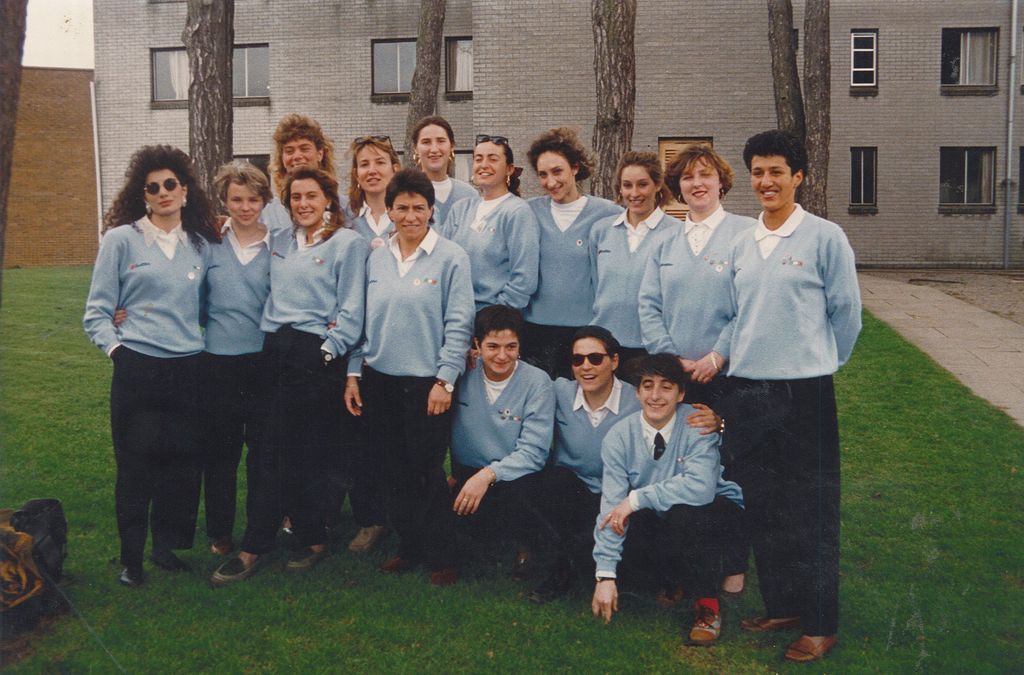Erika Morri is keen to unearth a new generation of rugby players in Italy, by showcasing the impact the game can have on the lives of young people.
Morri, who represented her country at two Rugby World Cups and currently sits on the Federazione Italiana Rugby (FIR) board, is hopeful she can help convince more schools to offer it as an option for their pupils.
At the heart of her work is a belief that rugby is a useful tool to combat bullying, which gives children the social and emotional skills they need to develop on and off the pitch.
Prior to the outbreak of COVID-19, Morri devised an anti-bullying campaign — ‘When I’m Worth It, You Are Worth It’ — that combined her two passions, art and rugby, and would have reached 12,000 Italian children.
“[In the UK] you've got rugby at school, everybody plays rugby,” Morri, who is up for re-election to the FIR board on Saturday, told World Rugby. “So, it's normal for the family. For us, it's a choice of the school.
“I thought about ‘When I’m Worth It, You Are Worth It’ because I want to change the paradigm.
“I don't want to feel that rugby has the perception that we’ve got that we are [just] a sport, because we've got many competitors. In the meantime, I [hope to] make schools understand that we are really a valid tool for the socialisation.
“I’ve changed the paradigm, it’s not a sport any more. It's a sports culture that educates children to relate in a good way to each other.”
‘I’m like a dinosaur’
Morri’s own relationship with rugby began aged six, when she realised it was the reason that her father had come home with two black eyes.
His bond with his team-mates meant that Morri grew up surrounded by surrogate uncles, and that feeling of community is something that has remained important to her throughout life.

It was, however, through the Girl Guides that she was first put in touch with a women’s team in her hometown, Bologna.
By then, Morri was training five times a week at a local athletics club, and her speed and fitness ensured that she became an almost instant success. She was still two weeks short of her 20th birthday when she lined up for Italy at the first women’s Rugby World Cup in Wales in 1991.
“Those who have never sung the anthems could not know [what it meant], because the matter is that in Italy it was totally unknown,” she said.
“I'm like a dinosaur of Italian female rugby. In that period, we were absolutely no one. And, so we just played for ourselves and for the people who knew how difficult it was playing rugby at that time.”
Morri would play into her 40s, appearing at a second Rugby World Cup, 11 years after the first, in Barcelona.
But, it was not until she had hung up her boots that she thought about stepping into administration. In the end, she followed that path in order to make sure there would be at least one woman in the room where decisions were being made.
“In that moment, I understood that if some of us didn't enter the control room,” Morri said, “we could not develop in the same way [as men].”
She added: “It’s important that, not [only] women are entering the room, [but] people who have got in their heart female rugby.
“It is just a feeling and a big vision, because rugby could develop because we are both pushing in the same direction. Until men understand that because they've got the 99.9 per cent, the presidents of our clubs are men.
“So, we could not wait [until] women became presidents. We have just to be convincing them that it is the strength of the club to be united in gender like the church, like all communities are mixed.
“So, this is the aim of my group, just working on marketing to make our club understand how it’s important to have the female side. And, yes, the company, yes, the advertising.
“But do the first important steps and make rugby players aware of how it’s important to be a community and not just a male kingdom, the last part of the male kingdom.”
Creative and courageous
Morri admits that her first four years on the FIR board has been “really tough” but she has some ambitious plans for the next four, should she win re-election.
One idea she has to increase grassroots participation is to partner with summer sports to offer children the chance to play rugby when they are not involved with, for example, volleyball.
At the elite level Morri is also keen to build on some encouraging results in the Women’s Six Nations — Italy finished second in 2019 — and help the team become semi-professional by 2025.
“I've got a creative mind, so I try to make [the best of] what I find in my setting, to think how we can just change and do different things,” she said. “Because if you always do the same thing, you will always have the same result.
“But, you have to have the courage to change the route. To say, ‘OK, let's try another thing’, and you have to find someone else, who like you thinks, ‘OK, let's try another thing’.
“And, it's for this that I'm really hoping this election [is successful] because I've got a strong group behind me that push me because they also believe in innovative things.”





